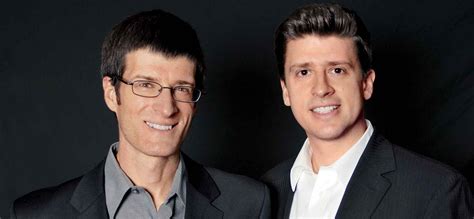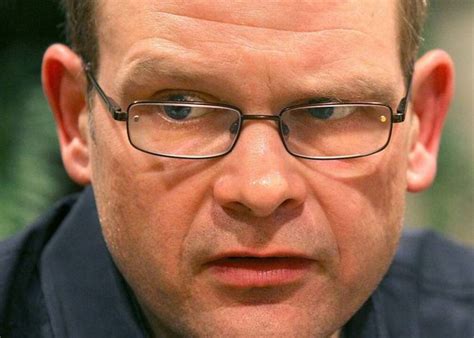A Quote by Chip Heath
What looks like a people problem is often a situation problem.
Related Quotes
Often a successful problem-solver is one who creates a new context in which to view the problem. This can often be done by directing one's attention away from the distracting details of the difficulty. From a detached perspective, we may examine the situation in a new or different light and, after exploring information and options, choose an appropriate course of action.
If we want to impact hundreds - or millions - of people, we have to do things differently. If we look at the problem as an infrastructural problem, we cannot make an impact because it requires a lot of effort. But when we convert this problem into a knowledge problem, suddenly the problem is manageable.
What has happened to create this doubt is that a problem (such as a deep conflict or a bad experience) has been allowed to usurp God's place and become the controlling principle of life. Instead of viewing the problem from the vantage point of faith, the doubter views faith from the vantage point of the problem. Instead of faith sizing up the problem, the situation ends with the problem scaling down faith. The world of faith is upside down, and in the topsy-turvy reality of doubt, a problem has become god and God has become a problem.
When the media worries about what Hillary’s hair looks like or what my hair looks like, that’s a real problem. We have millions of people who are struggling to keep their heads above water, who want to know what candidates can do to improve their lives, and the media will very often spend more time worrying about hair than the fact that we’re the only major country on earth that doesn’t guarantee health care to all people.
I am not keen on the idea of an oversharer. I don't like that as a problem. I have more of a problem with an undershare. If I'm talking to somebody and I ask them how their love life is and they say "fine," that's a problem for me. I want to know things about people, I feel like we're all here on this planet, and intimacy is important.
Sometimes clients have a sophisticated view of their design problem, sometimes they do not. I often spend time with the client redefining the problem, going back to the beginning. Often the problem is just a symptom. Sometimes you have to move back in order to move forward to understand what the nature of the solution should be.
Finally, imagine that you've really worked hard on yourself and become a level 10 person. Now, is this same level 5 problem a big problem or a little problem? The answer is that it's no problem. It doesn't even register in your brain as a problem. There's no negative energy around it. It's just a normal occurrence to handle, like brushing your teeth or getting dressed.
Civil disobedience is not our problem. Our problem is civil obedience. Our problem is that people all over the world have obeyed the dictates of leaders…and millions have been killed because of this obedience…Our problem is that people are obedient allover the world in the face of poverty and starvation and stupidity, and war, and cruelty. Our problem is that people are obedient while the jails are full of petty thieves… (and) the grand thieves are running the country. That’s our problem.


































